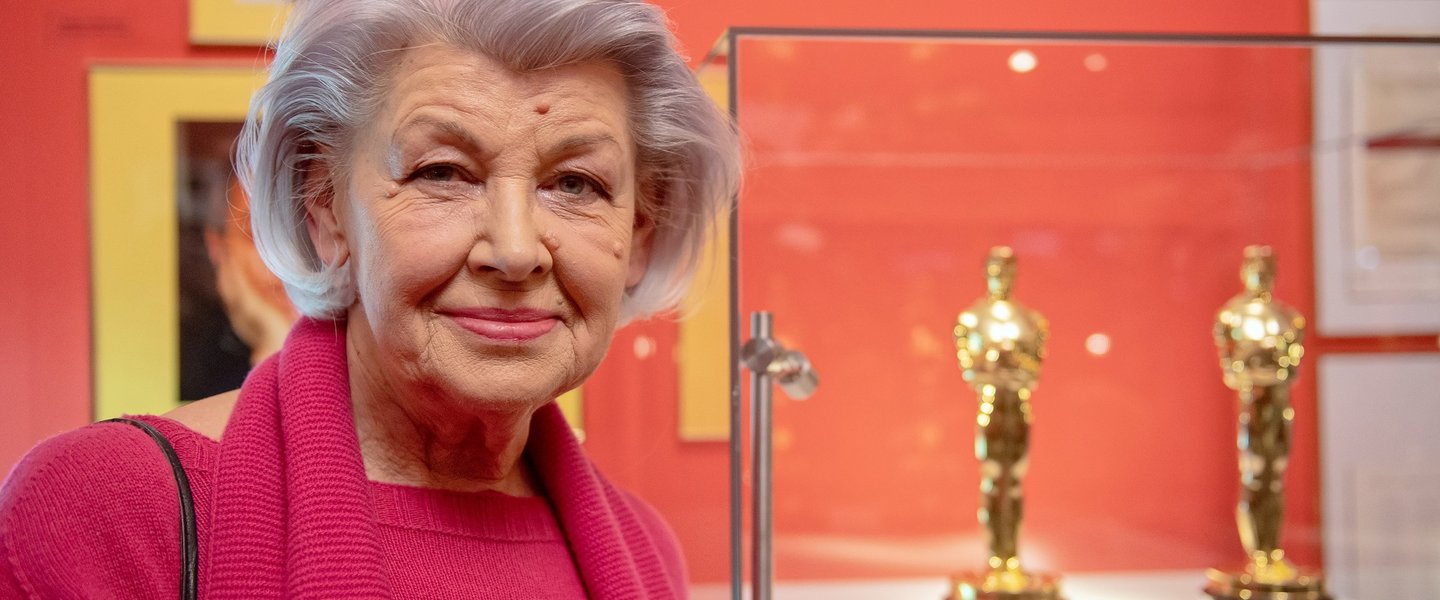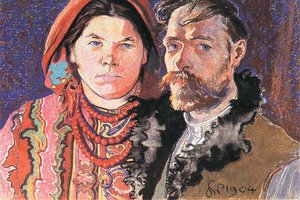Polish Oscar winners and nominees
Polish cinematography has a long history and many remarkable achievements, which is reflected in the long list of nominations and awards won by Polish directors, cinematographers, composers, screenwriters, animators and other cinematographic professionals.
Polish-born cinematographic professionals have always had their place both in film-making and in Hollywood, and therefore it does not come as a surprise that a Pole got nominated for an Oscar as early as in 1931, only two years after the first ever American Awards ceremony was held. Poles won 15 Oscars in total, including two Honorary Academy Awards, but their primary strength has been cinematography with fourteen nominations in total and two wins by Janusz Kamiński for his work on Schindler’s List and Saving Private Ryan.
 Among the first nominees was Anton Grot, or Antoni Franciszek Groszewski, a distinguished art director who emigrated to the United States in 1909, and was hired by Warner Brothers. He was nominated for five Oscars for Best Art Direction and won a special Scientific and Technical Award for inventing… a water ripple and wave illusion machine used in The Sea Hawk (1940). Then came five nominations, in five consecutive years, for Rudolph Maté, a Polish-Hungarian-American cinematographer born in Kraków in 1898.
Among the first nominees was Anton Grot, or Antoni Franciszek Groszewski, a distinguished art director who emigrated to the United States in 1909, and was hired by Warner Brothers. He was nominated for five Oscars for Best Art Direction and won a special Scientific and Technical Award for inventing… a water ripple and wave illusion machine used in The Sea Hawk (1940). Then came five nominations, in five consecutive years, for Rudolph Maté, a Polish-Hungarian-American cinematographer born in Kraków in 1898.
The 1950s and 1960s saw nominations for Poles for Best Actress (Ida Kamińska, 1967), Best Foreign Language Film (Roman Polański, 1963, Knife in Water; Jerzy Kawalerowicz, 1966, Faraon), Best Original Music Score and Best Original Song (Bronisław Kaper, 1953, Mutiny on the Bounty), Best Writing (Roman Polański, 1968, Rosemary’s Baby), and two wins: the 1965 Scientific and Technical Award for Stefan Kudelski, an audio engineer, and the 1953 Best Original Music Score Award for Bronisław Kaper, a composer and jazz musician, both from Warsaw.
In 1973, Tadeusz Jaworski was nominated for Best Documentary, and in 1974, two Poles were among the nominees – Roman Polański for Chinatown and Jerzy Hoffman for The Deluge, but both returned home with empty hands. The second half of the 1970s brought three more nominations for Best Foreign Language Film, two for Andrzej Wajda (1975, Promised Land; 1979, The Maids of Wilko), and one for Jerzy Antczak (1976, Nights and Days), and two wins – the 1977 and 1978 Scientific and Technical Awards went to Stefan Kudelski (again!) for the design of the Nagra machine.
Roman Polański was a nominee for Best Director again in 1980 for Tess, but was beaten that year by Robert Redford. After Wajda’s Man of Marble (1976), which went unnoticed by the Academy, came the second part of the cycle – Man of Iron (1981), a story of the Gdańsk shipyard workers strike – which got nominated in 1981 for the Academy Award for Best Foreign Language Film but lost to István Szabó’s Mephisto.
The martial law, introduced in Poland in 1981, had a great impact on Polish film-making – films were heavily censored and premieres were delayed. Poles working abroad had more luck – Agnieszka Holland, who was working in West Germany at the time, got nominated for Angry Harvest (1985), and Zbigniew Rybczyński and Tad Krzanowski, Polish immigrants to the United States, won the Academy Award for Animated Short Film (1982) and the Academy Scientific and Technical Award (1988) respectively.
 In the 1990s, after the fall of communism, Poles were back in the game – with a long list of nominees, namely Krzysztof Kieślowski for Best Director (1994, Three Colours: Red), Piotr Sobociński for Best Cinematography, Anna B. Sheppard for Best Costume, Krzysztof Kieślowski together with Krzysztof Piesiewicz for Best Original Screenplay, and Marcel Łoziński for Best Documentary, and four wins. Janusz Kamiński, a Polish cinematographer who emigrated to the United States in 1981, was nominated three times and triumphed twice: first in 1993 (Schindler’s List) and again in 1998 (Saving Private Ryan), whereas Ewa Braun and Allan Starski won the 1994 statuette for Best Art Direction (Schindler’s List). On top of that, at the 72nd Academy Awards, Andrzej Wajda, a then three-time Oscar nominee, was presented with an honorary Oscar for his contribution to world cinema and lifetime achievement.
In the 1990s, after the fall of communism, Poles were back in the game – with a long list of nominees, namely Krzysztof Kieślowski for Best Director (1994, Three Colours: Red), Piotr Sobociński for Best Cinematography, Anna B. Sheppard for Best Costume, Krzysztof Kieślowski together with Krzysztof Piesiewicz for Best Original Screenplay, and Marcel Łoziński for Best Documentary, and four wins. Janusz Kamiński, a Polish cinematographer who emigrated to the United States in 1981, was nominated three times and triumphed twice: first in 1993 (Schindler’s List) and again in 1998 (Saving Private Ryan), whereas Ewa Braun and Allan Starski won the 1994 statuette for Best Art Direction (Schindler’s List). On top of that, at the 72nd Academy Awards, Andrzej Wajda, a then three-time Oscar nominee, was presented with an honorary Oscar for his contribution to world cinema and lifetime achievement.
The new millennium brought as many as seven nominations for Best Cinematography, four for Best Foreign Language Film and Best Documentary, two for Best Director, two for Best Costume, two for Best Animated Short Film, and one for Best Picture, Best Original Music Score, Best Animated Feature and Best Live Action Short Film. Most importantly, however, The Pianist finally won Roman Polański an Academy Award for Best Director in 2002, Jan A. P. Kaczmarek took the 2004 Oscar for his music in Finding Neverland, and Paweł Pawlikowski was awarded the Best Foreign Language Film for Ida (2014).
Poland.pl
17.05.2019







